Cows make Christmas extra cheerful
It might seem like a real chore to have to take care of the animals before any Christmas gifts or meals can happen, but to me it is such a special time.
Read MoreBy giving yourself grace and implementing practical strategies, you can navigate busy times while taking care of your mental health.
“Why in the world do we think any of this is fun,” I yelled out almost in tears to my husband as I held my arms out gesturing to the barn where cattle and goats were bellowing for us to feed them at 9 p.m., the crying kids (who were in trouble for the nonstop bickering that had ensued the last 20 minutes) walking to the house, the fast food bags sitting on my vehicle because I never laid anything out for dinner and quite frankly had no energy left to cook — and well honestly — just life in general at the moment was not fun.
We are over a month into the baseball and softball season for my kids, ages 10 and 6, and have ball anywhere from four to six days a week. We aren’t home until 8 or 8:30 at the earliest. We are also trying to balance work, school, 4-H beef projects that need to be washed and walked daily, planting a garden, yard work and more.
Our kids are exhausted. We are exhausted. I often find myself apologizing for sharing when I am tired, when I am stretched too thin — because someone always has it harder than I do. As I write this though, I am reminded of a conversation I was having with an industry professional and I was sharing some of my struggles with work life balance.
“Why in the world am I complaining? I don’t farm nearly as much as most.” She said to me, “Mandy, don’t ever beat yourself up for the way you feel. Three cows or 300, you still had to get dressed, put on your boots and walk to that barn on top of all the other things you still needed to do. You are allowed to feel overwhelmed by what is happening in your life.”
Let’s say that again — you are allowed to feel overwhelmed by what is happening in your life.
I’ve been making a considerable effort to find the positives in even the most maddening situations. I think positivity is incredibly important, but life is messy and hard, and I also think it is important to talk about those things as well. Ignoring or minimizing your feelings is not good for yourself or your loved ones, and in fact, often makes things worse.
Give yourself grace. We had peanut butter sandwiches one night last week. Another night was McDonalds and the third night was a frozen pizza. I beat myself up more than I would like to admit over those three nights. I should have prepared better and had food in the crockpot or prepped for grilling. My fitness trainer, who I haven’t checked in with in weeks, posted about how giving your best changes constantly and how sometimes giving your best is honestly surviving. I recognized at that moment that I hadn’t sat down in days other than to work. I was doing the best I could under the circumstances of the week’s schedule. Self-compassion is something I’m not great at, but it is very important we recognize the hard work we put in. We also have to understand that comparing ourselves with others isn’t fair either. Everyone’s journey is different and what works for someone else may not work for you.
Fifteen minutes into chores and washing my son’s heifer, I already felt the weight of the world lifting off my shoulders. Anyone who knows me knows I love cattle. While it was work, washing her and helping my son walk her brought me joy and after my breakdown earlier — I needed that joy. Mental health is just as important as physical health, but we tend to forget about that. Taking care of your mental health is just as important as physical health. Here are some ways to ensure you’re nurturing your mental well-being:
• Stay connected — Build a support network with family, friends and fellow farmers. Regularly check in with each other to share experiences and provide support.
• Routine breaks — Incorporate short, frequent breaks into your daily schedule. Even a brief pause for a cup of coffee or a walk around the farm can help clear your mind and reduce stress.
• Physical activity — Farming is physically demanding, but try to engage in different types of physical activity to keep things interesting. Simple stretching exercises or a short walk can relieve tension and improve your mood.
• Healthy eating — Maintain a balanced diet to support your overall health. Try to eat regular meals with a variety of nutritious foods, even during busy seasons.
• Adequate sleep — Ensure you’re getting enough rest. Consistent sleep routines may be impossible, but rest when you can.
• Talk about it — Open up about your feelings with someone you trust. Sometimes, just talking about your stress and challenges can provide significant relief.
• Community involvement — Engage in community activities or local farming groups. Social interactions and shared experiences can be a great source of support.
• Delegate tasks — Don’t be afraid to ask for help or delegate tasks when needed. Sharing the workload can prevent burnout and reduce stress.
• Professional support — If you’re feeling persistently overwhelmed, consider seeking professional help. Farm Bureau, alongside many industry professionals, offer resources and support specifically for farmers, including hotlines and counseling services. Visit agri.ohio.gov/gotyourback for resources on farm stress.
Remember, it’s OK to feel overwhelmed and exhausted.
Life can be demanding, and acknowledging your feelings is the first step toward managing them. By giving yourself grace and implementing practical strategies, you can navigate busy times while taking care of your mental health.
Sometimes, surviving is the best you can do, and that’s perfectly OK.
Be kind to yourself — you’re doing the best you can. And in your journey, don’t forget to extend that kindness to others, for everyone is fighting their own battles.
Submitted by Mandy Orahood, the organization director at Ohio Farm Bureau Federation for Ashtabula, Geauga, Lake and Trumbull counties.
OFBF Mission: Working together for Ohio farmers to advance agriculture and strengthen our communities.

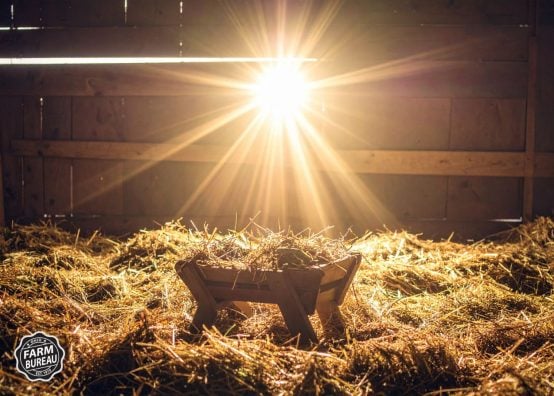
It might seem like a real chore to have to take care of the animals before any Christmas gifts or meals can happen, but to me it is such a special time.
Read More

Happy Thanksgiving, Everyone! I say it every year, but Thanksgiving is my favorite holiday. The gathering of friends and family…
Read More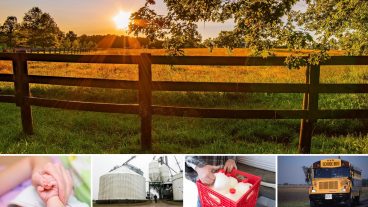

We need to get back to being people who see the good before the differences. Because when agriculture thrives, communities thrive.
Read More

As we pull on our hoodies, light our jack-o’-lanterns and sneak just one more piece of candy, we can thank agriculture for giving us the most spooktacular night of the year.
Read More

It is currently illegal to sell unpasteurized milk in Ohio. There is a renewed interest in raw milk sales, so that could change.
Read More
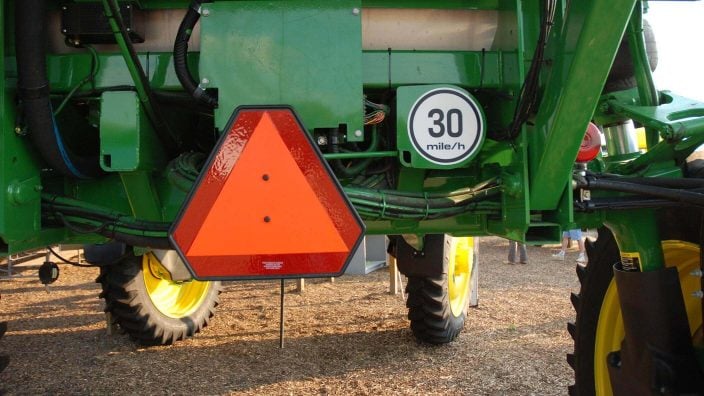
Fatigue and stress can sneak up on even the most seasoned farmer. Please, take care of yourselves.
Read More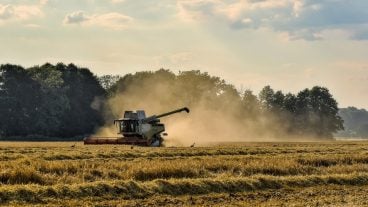
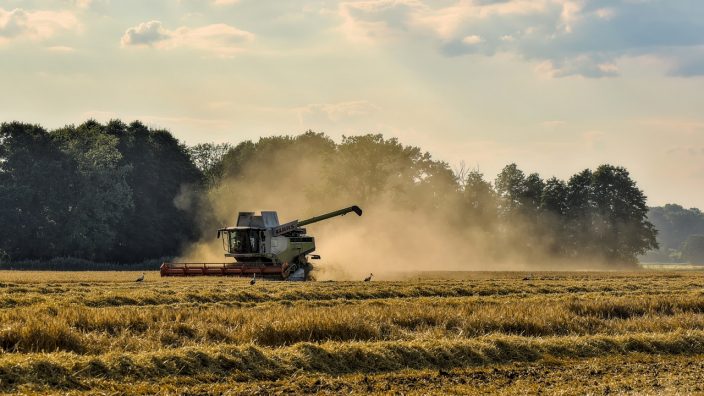
Traveling on roads with large, often oversized equipment adds to the stress.
Read More

Much of Ohio’s pumpkin crop ends up at farm markets, roadside stands and patches where families pick out carving pumpkins and pie pumpkins by hand.
Read More

Seeing these events be so successful and having kids so excited and eager to learn is truly heartwarming.
Read More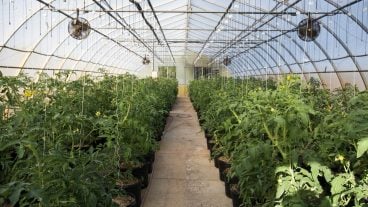
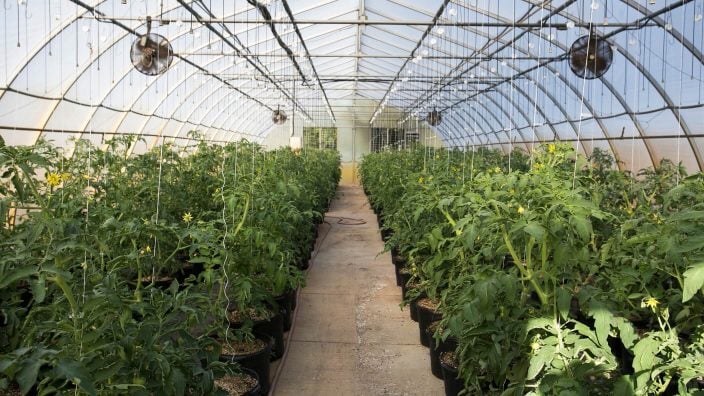
CEA will not replace traditional farming, but it is helping our food supply be more sustainably produced in the United States.
Read More